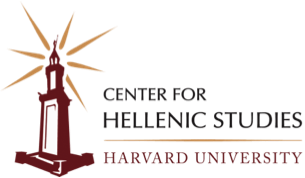

Council of Independent Colleges
Seminar Dates: June 17-25, 2018
Ancient Greece in the Modern Classroom
In June 2018 The Council of Independent Colleges (CIC) and the Center for Hellenic Studies will coorganize a seminar for faculty members in all fields. The seminar, designed for non-specialists, is led by Gregory Nagy, Francis Jones professor of Classical Greek Literature and professor of Comparative Literature at Harvard University, and Kenneth Scott Morrell, associate professor of Greek and Roman Studies at Rhodes College.
For the first time, the seminar will be held in Greece at the Center for Hellenic Studies facilities in Nafplio and other locations of historical importance. The seminar is open to full-time faculty members in all disciplines who are likely to have occasion to use classical texts in their courses and may be of special interest to faculty members in the fields of archaeology, history, art history, literature, classics, theatre, and philosophy, among others, and to those who lead or are planning trips for students to Greece.
In the second century CE, Pausanias, a Greek traveler originally from Ionia, an area of Greek-speaking cities along the coast of Asia Minor, visited Greece and recorded his observations and experiences in ten guide books, beginning with his arrival in the region of Athens. His Periegesis Helládos (Description of Greece), which dates approximately from the reign of Marcus Aurelius (161–180 CE), occupies a unique position in the surviving Greek literature as a compendium of information about architecture, artifacts, traditional narratives, local history, social conventions, rituals, and genealogies. For Pausanias, the time when Athens and Sparta and their client city-states had shaped the cultural and political landscape of the Eastern Mediterranean was already in the distant past. His writings reflect a preoccupation with connecting the places and people of his time with historical events and figures from earlier eras and through that process coming to a better understanding of his own cultural legacy.
Over the course of seven days, the seminar will visit many of the places Pausanias saw, including sites in and around Argos, Olympia, Delphi, and Athens to situate what we have inherited from ancient Greek culture in its formative context. In addition to Pausanias’s descriptions, participants will read a selection of poetic, historical, and philosophical works related to each site. The seminar also will provide participants with a background in the development of Greek material culture, such as the evolution of sacred, domestic, and civic architecture, funerary practices, sculpture, and the two-dimensional representations of traditional narratives and daily life in vase paintings.
The seminar is made possible through the generous support of the Andrew W. Mellon Foundation.
Costs
The cost of lodging, transportation to and entry fees for seminar-related excursions to archaeological sites and museums, reading materials, and most meals will be covered by CIC and CHS, thanks to the generous support of the Andrew W. Mellon Foundation. Selected participants will be expected to make their own international travel arrangements to Athens, Greece, and CIC will reimburse participants up to $1,200 for related costs. In addition, CIC will offer a stipend of $175 to offset some daily incidental costs during the week. The only expense to participants or their institutions will be the cost of transportation and personal expenses beyond this supported amount.
Contact Information
Questions regarding the Ancient Greece in the Modern College Classroom seminar should be directed to Stephen Gibson, CIC director of programs at sgibson(at)cic.nche.edu, or to Evangelos Katsarelis, CHS GR Programs & Events Coordinator at ekatsarelis(at)chs.harvard.edu.
